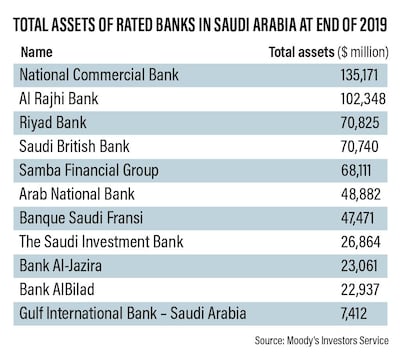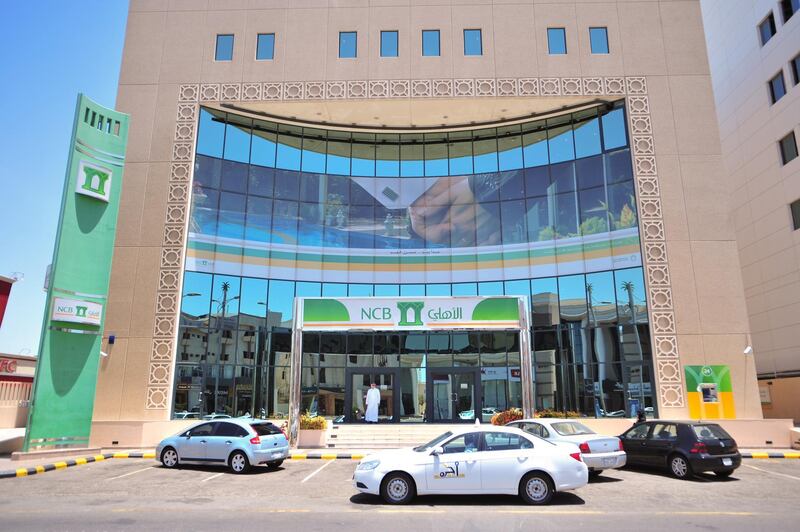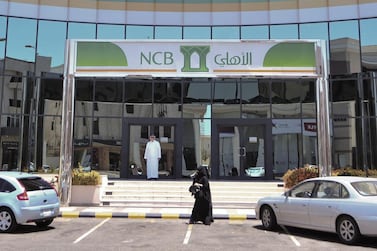A merger between Saudi Arabia’s National Commercial Bank and Samba Financial Group would create the biggest lender in the kingdom "by some way", with a 30 per cent share of the market, according to EFG Hermes.
NCB is already the kingdom’s biggest bank in terms of assets, with a 21 per cent share of the market. Samba is the fourth biggest, with an 11 per cent share.
The combined bank will have a total asset base of 800bn Saudi riyals, ($213bn/Dh782bn). "It will be just shy of [the] UAE’s FAB [First Abu Dhabi Bank] in terms of assets,” EFG Hermes’ analysts said.
On Thursday, the two lenders said they were working on a merger, in which NCB would be the merging bank and Samba Financial the merged lender. The terms agreed will see Samba shareholders receive between 0.736 and 0.787 newly issued shares of NCB in exchange for each Samba share they hold.
Based on the exchange ratio range, at a closing share price of 37.25 Saudi riyals per NCB share on June 24, the proposed deal would value Samba Financial Group shares at between 27.42 and 29.32 riyals, a premium of 19.2 to 27.5 per cent above its closing price as of June 24, according to the NCB regulatory filing.
This indicates NCB could pay between $14.62bn and $15.63bn to buy its rival.
“The level of detail [announcement of a swap ratio range] and an announced timeline [four months] suggest that the talks are quite advanced,” EFG Hermes said.
The fact the Public Investment Fund is a key shareholder in both banks, with a 44 per cent stake in NCB and 23 per cent of Samba, makes the prospect of a merger much more likely, according to the investment bank.
“Disagreement between shareholders can be a large obstacle to mergers; however, as both banks have a key common shareholder, the likelihood of this deal going through is higher, in our view,” EFG Hermes said.
NCB ended merger talks with the kingdom's third-biggest lender, Riyad Bank, in December last year after a year of negotiations.

The creation of a much larger institution would give the merged bank greater pricing power over both loans and deposits, EFG Hermes said.
A deal also increases cross-selling potential, allows the lender to devote more resources towards digitisation and increases its counterparty lending limits.
On top of this, a merger “potentially unlocks cost synergies”, although Samba’s relatively small branch network limits the upside to this, EFG Hermes said. Both NCB and Samba said on Thursday that they do not expect the proposed merger to result in the involuntary redundancy of employees.
As the market closed before last week’s announcement, NCB had a market capitalisation of about $27.3bn, compared with Samba Financial's $10.9bn. Samba Financial’s shares were trading almost 10 per cent higher at 26.30 riyals by 11.10am on Sunday morning, while NCB’s shares were up 4.6 per cent at 38.95 riyals per share.
"We believe Samba is a more strategic fit than Riyad Bank and could present good cost synergies," analysts from Al Rajhi Capital said in a note on Thursday.
"In the current scenario of the possibility of high NPA [non-performing assets], the combined entity will have among the lowest LDR [loan-to-deposit ratios] and highest investment book."







